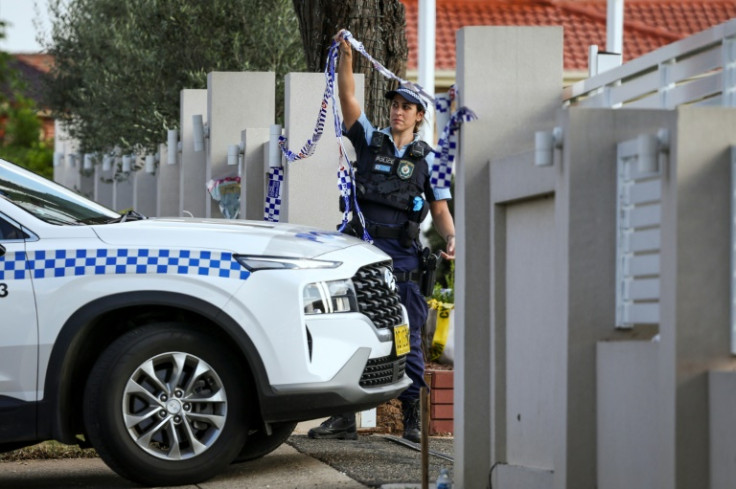
Australian police on Wednesday defended their decision to declare a 16-year-old's alleged stabbing of a bishop in a Sydney church a "terrorist" act as community leaders fretted over its impact.
Bishop Mar Mari Emmanuel was slashed on Monday during a live-streamed sermon in the Assyrian community's Christian church in western Sydney.
No one died but the bishop was stabbed in the head and chest and taken to hospital.
The attacker was rapidly subdued and held within the Christ the Good Shepherd Church building in Wakely.
A riot then erupted outside as hundreds of congregants and members of the community vented their fury, some of them throwing rocks and injuring police officers deployed to the scene, police said.
The teenager was being treated in a Sydney hospital Wednesday and may remain there for several more days, said New South Wales police commissioner Karen Webb.
Webb, who has described the attack as religiously motivated extremism, said she made the "terrorist" designation hours after the attack, strictly in line with state law.
The 2002 legislation says a terrorist act is one that harms a person, is motivated by a political, religious or ideological cause, and is aimed at intimidating the public.
Webb said she was satisfied the attack met the legal criteria.
"I made that declaration without hesitation," she said.
But the police chief said she could understand people's concerns.
"We have got just as many questions about what was on the mind of the young person and that's why an investigation is now important," she told public broadcaster ABC.
A "terrorist" declaration does not mean the teenager will be charged with terrorism, she said.
As a result of the designation, a joint counter-terrorism task force opened a probe, combining state and federal police forces and the intelligence service ASIO.
The bishop, who has a large online following, has galvanised many with his criticism of Covid-19 vaccines and lockdowns as well as Islam.
A Muslim community leader in Sydney said police may have "jumped the gun" with the terrorism designation.
"I just don't think it helps the situation," Gamel Kheir, secretary of the Lebanese Muslim Association, told AFP.
"Why are we so quick to jump to a definition of terrorism when religion is involved?" he asked.
Kheir said there was a gap between the community perception of a terrorist act and the police use of terrorism legislation.
For many people, the term terrorism would apply more to Saturday's knife rampage in a Sydney shopping mall, in which six people were killed, he said.
Sydney's main Lakemba Mosque, of which the association is caretaker, had increased security since Monday's attack, Kheir said.
The measures followed threats carried on social media against the Lakemba Mosque and other mosques closer to the site of the church attack, he said.
Dai Le, the member of parliament for the Fowler electorate that includes the church, said she was "shocked" by the terrorism declaration.
"I think it is such a quick announcement. I don't know if they had time to really assess the situation," she said in a television interview Tuesday.
Le said she was concerned the declaration would "heighten the tension" already existing in the area's multi-faith community.
"This is just going to add to it," she said.





